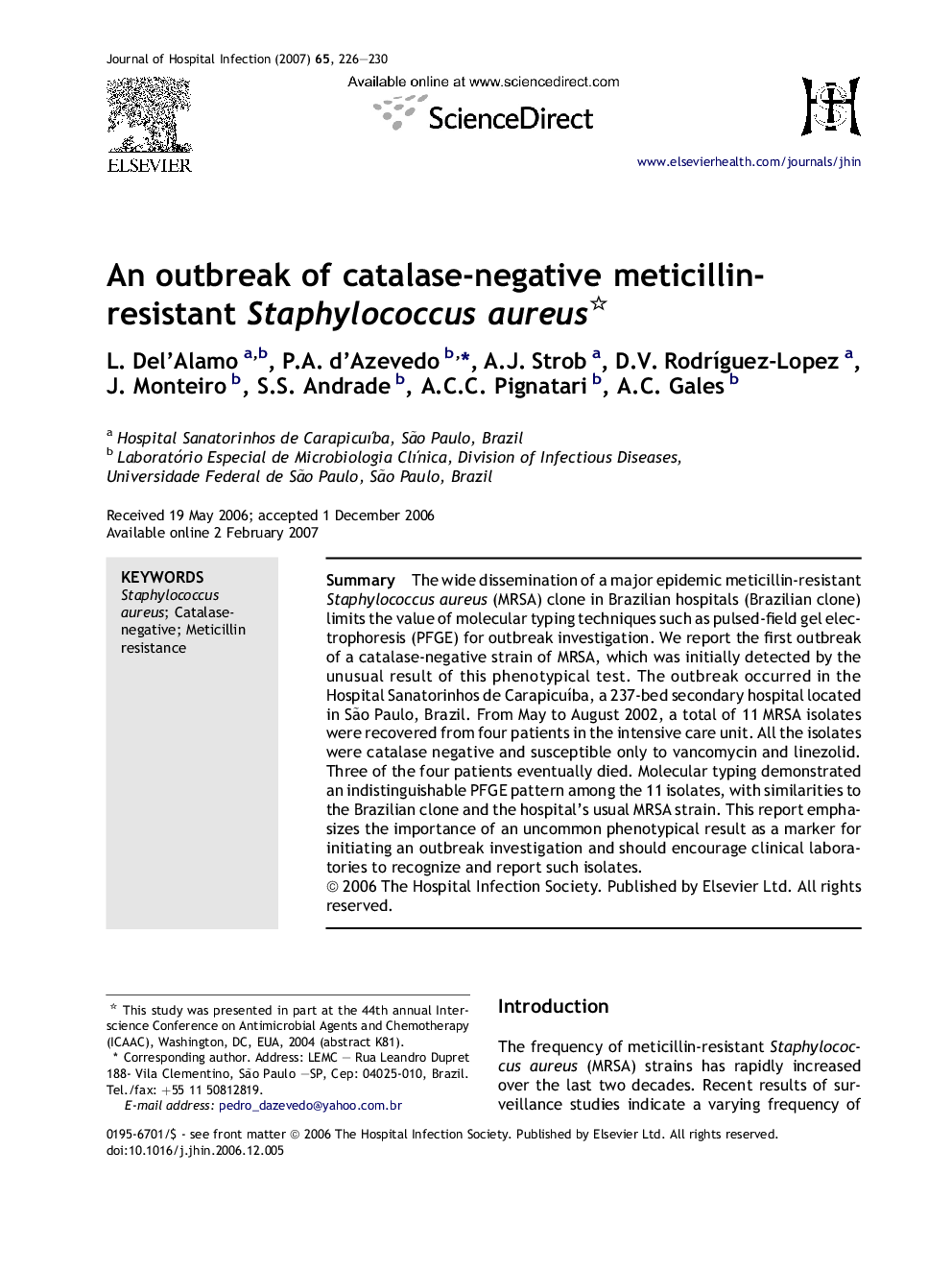| Article ID | Journal | Published Year | Pages | File Type |
|---|---|---|---|---|
| 3373711 | Journal of Hospital Infection | 2007 | 5 Pages |
SummaryThe wide dissemination of a major epidemic meticillin-resistant Staphylococcus aureus (MRSA) clone in Brazilian hospitals (Brazilian clone) limits the value of molecular typing techniques such as pulsed-field gel electrophoresis (PFGE) for outbreak investigation. We report the first outbreak of a catalase-negative strain of MRSA, which was initially detected by the unusual result of this phenotypical test. The outbreak occurred in the Hospital Sanatorinhos de Carapicuíba, a 237-bed secondary hospital located in São Paulo, Brazil. From May to August 2002, a total of 11 MRSA isolates were recovered from four patients in the intensive care unit. All the isolates were catalase negative and susceptible only to vancomycin and linezolid. Three of the four patients eventually died. Molecular typing demonstrated an indistinguishable PFGE pattern among the 11 isolates, with similarities to the Brazilian clone and the hospital's usual MRSA strain. This report emphasizes the importance of an uncommon phenotypical result as a marker for initiating an outbreak investigation and should encourage clinical laboratories to recognize and report such isolates.
